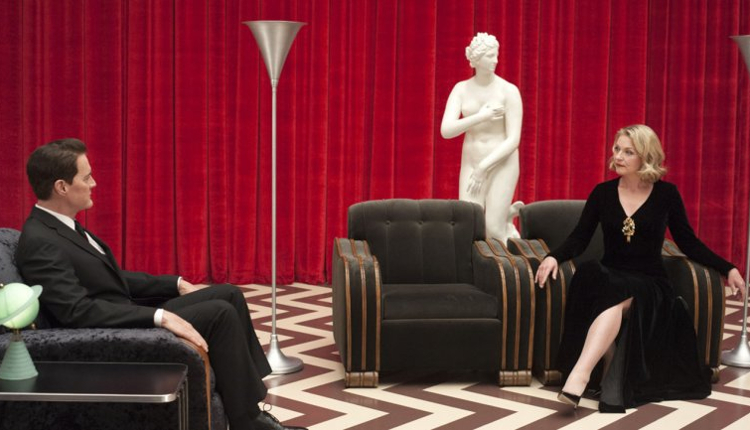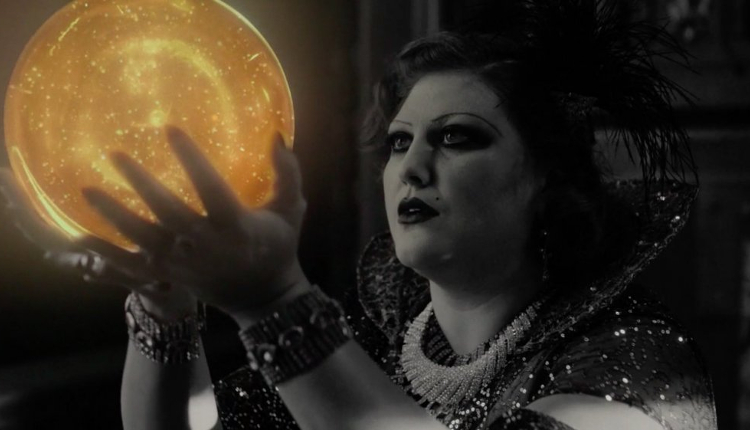What Year Is This? | Is Twin Peaks: The Return the Greatest Achievement in the History of Television?
Note: This piece contains spoilers for Twin Peaks: The Return
“What year is this?” – Dale Cooper
And with those words (along with one last classic Laura Palmer scream) Twin Peaks: The Return comes to an end. At this point whether this is a true series finale or a mere pause until another season is unclear. Either way, the third season of the classic TV show will go down as a bold, horrifying vision that maintained David Lynch’s reputation as one of the most original and uncompromising artists of all time. Twin Peaks remains, even within an increasingly crowded TV landscape, the strangest and most unsettling show to ever be broadcast on television. Nothing else comes even close. We could ask ourselves the same question that Cooper poses to himself in the final moments of “Part 18”. Twin Peaks back in 1991 was complex show of baffling contrasts that completely redefined TV as an art form which offered a finale that was as brilliant as it was frustrating. Lynch and Mark Frost have repeated that same feat now in 2017. As The Giant once said, it is happening again. Wait: what year is this?
The legacy of Twin Peaks was never in any doubt. The original two seasons of the show were nothing less than a full on phenomenon that broke all preconceived notions about TV as an artistic medium. It’s been cited as an influence by almost every show in the past 20 years, from the gloriously weird comedy Atlanta to the mainstream sensation that was Lost. There was no way that The Return could undo this. For all the excitement that the announcement of a new season of Twin Peaks brought about there was no real expectation that these new episodes could accomplish what Twin Peaks did in the early 1990s. How could it? The television landscape has completely changed since the original series ran. After so many years of innovation and boundary pushing how would it be possible for Twin Peaks to shock and surprise as it once did?

The Return surpassed all expectations but it most remarkably somehow managed to again transcend anything else on television. Lynch and Frost might have reinvented the show with this most recent experiment but they did so while largely maintaining the same balance between the goofy and the abjectly horrifying for which the original series was famed. Their commitment to slow, meditative storytelling that refused to grant us quick answers was something that tested even the most loyal Lynch fans, but for those who could stick it, it was nothing short of something miraculous. Twin Peaks in 2017 is as stubbornly resistant to the cultural conversation as Twin Peaks was in 1990. This is a show that exists outside time and convention. Every unexpected turn, every abandoned plot point, every overwhelmingly indiscernible minute of “Part 8” is the pure antithesis to our age of hot takes. It was a nuclear explosion of creativity from the confines of a deeply mimetic culture.
[perfectpullquote align=”right” cite=”” link=”” color=”#F42A2A” class=”” size=””]Their commitment to slow, meditative storytelling that refused to grant us quick answers was something that tested even the most loyal Lynch fans, but for those who could stick it, it was nothing short of something miraculous.[/perfectpullquote]
Is it in anyway possible that The Return could have the same kind of influence that the original series did? That’s a hard argument to make but it’s certainly true that The Return has only further cemented the place of Twin Peaks among the best television shows ever made. Ideally, The Return can push television even further in the direction of the experimental, a direction that promises to be the future of television. Even if television has arguably surpassed film as a more fertile creative arena it still lacks anything resembling what film has with art-house. This isn’t to suggest a reductive argument in which art-house is inherently better than any other form of entertainment, but television (and culture at large) can no longer sustain a monolithic culture. There isn’t a mass market anymore. The future is niche. The future is Twin Peaks.
Anything Lynch creates will always provoke great debate along the lines of what the hell did I just watch? The two part finale of The Return is no different. Following a penultimate episode that offered a shocking amount of actual plot with a conclusion that seemed to undermine the whole series was always going to raise eyebrows. What did it all mean? Who really knows. Lynch has built his reputation on films that invite such scrutiny, films that require their watcher to play detective to make sense of them. No one can be criticised for burying themselves into Reddit fan theories to find the meaning behind all this madness. We watch Lynch to be confounded, to be disturbed, to feel the unease in the reality that is being depicted. Yet let’s not let the destination dominate the journey. The meaning of The Return is unclear but the season’s achievements are not.
On a scene to scene basis The Return often felt more like a spell than a mere television show. Lynch has long been fascinated with dreaming, and the show is best understood as analogous to a dream state ranging from slumber (the long stretches of undisturbed calm) to full blown nightmare (Evil Cooper’s first reincarnation). The bigger picture of The Return is not much clearer now that the series has actually concluded but this wasn’t a road to nowhere. This 18 episode run has provided some of the most haunting and ambitious storytelling that matches anything from the last ten years or so. Will there be a performance this year as brilliant as Kyle MacLachlan as Evil Dale Cooper/Good Dale Cooper/Dougie Jones/Richard? Will there be a more painfully human moment than Harry Dean Stanton comforting a mother whose child has just been killed in a hit and run? And can anything outdo the horror of the young couple mauled to death from some sort of monstrous apparition that manifests in a glass box? No other filmmaker has rendered the otherworldly as viscerally as Lynch and The Return was a conveyor belt that delivered shock and awe to us every week without fail.
An accusation that is frequently thrown against Lynch is the idea that he is guilty of weird for weirdness sake, that his work frequently signifies nothing and fails to justify his eccentric approach to narrative. This is not only untrue but actually the complete opposite of the truth. Lynch’s work is imbued with so many different meanings that it is difficult to discern any one singular truth. A case could be made that The Return is largely about how we’re doomed to repeat cycles, a series of repetition as endless as the looped boxing match that Sarah Palmer watches in “Part 13”. Shelly Briggs watches her daughter fall for an abusive man just as she once did, Cooper is forever stuck in a failing fight against the forces of evil. Life goes on but somehow things stay the same. There are no ends, no conclusions, just repetition. Is it future or is it past?
But what if you wanted to argue that The Return is about ageing? This is a long dormant series that returns with the spectre of death hanging over it, the losses of Miguel Ferrer, Warren Frost, Catherine E. Coulson and David Bowie make the passage of time impossible to ignore while watching. Much of the season is really about regret, about past wrongs that these ageing characters attempt to rectify. The journey of Cooper can be interpreted as an almost classic tale of mid-life crises, the process of changing into someone you don’t recognise, whether it’s as a Douglas Jones or as a Richard. The desire to reclaim that past identity and to reclaim your past more generally is something that drives this season, concluding on a note of how futile it is to fight time. We all fall victim to it.

Or how about the idea that The Return is itself a self-reflective commentary on reprising the show all these years later? Could the monster breaking through the glass box in the first episode function as a metaphor for watching the show itself, an image not completely unlike the opening to the film Twin Peaks: Fire Walk With Me? Does the ‘return’ in the title refer not just the return of Twin Peaks to television but the idea of trying to return to the Twin Peaks of over twenty years ago? The penultimate episode almost resembles something like the classic Twin Peaks before Cooper goes back in time to try and save Laura Palmer from her death, leading to a parallel reality in which Cooper isn’t Cooper and Laura isn’t Laura. In trying to meddle with the original events too directly Cooper succeeds only in helping create a world of chaos that all comes crashing down to the sound of Laura’s screams. Cooper’s question about what year he’s in might just be a question for the show itself. The 2017 Twin Peaks is not the same as the original and trying to connect the two destroys everything.
The fact that this series leaves us with so many questions is itself a thing of beauty. Twin Peaks still stands out as an anomaly in how it refuses to play to expectations or provide simple answers. This isn’t arrogance but faith in itself and in the audience to accept the uncertain state of the unknown. Twin Peaks is a challenging, bizarre show that is as formally adventurous as anything cinema can do. Now, there’s an idea that television needs to be increasingly cinematic, an assertion that is dubious in my estimation (television is not cinema and nor should it strive to be). But Twin Peaks is proof that television can sustain and support a cerebral, experimental show that can serve as a model for future writers to aspire to. It pushes the boundary, just as it did in 1990. For that Twin Peaks is the greatest achievement in the history of television.

